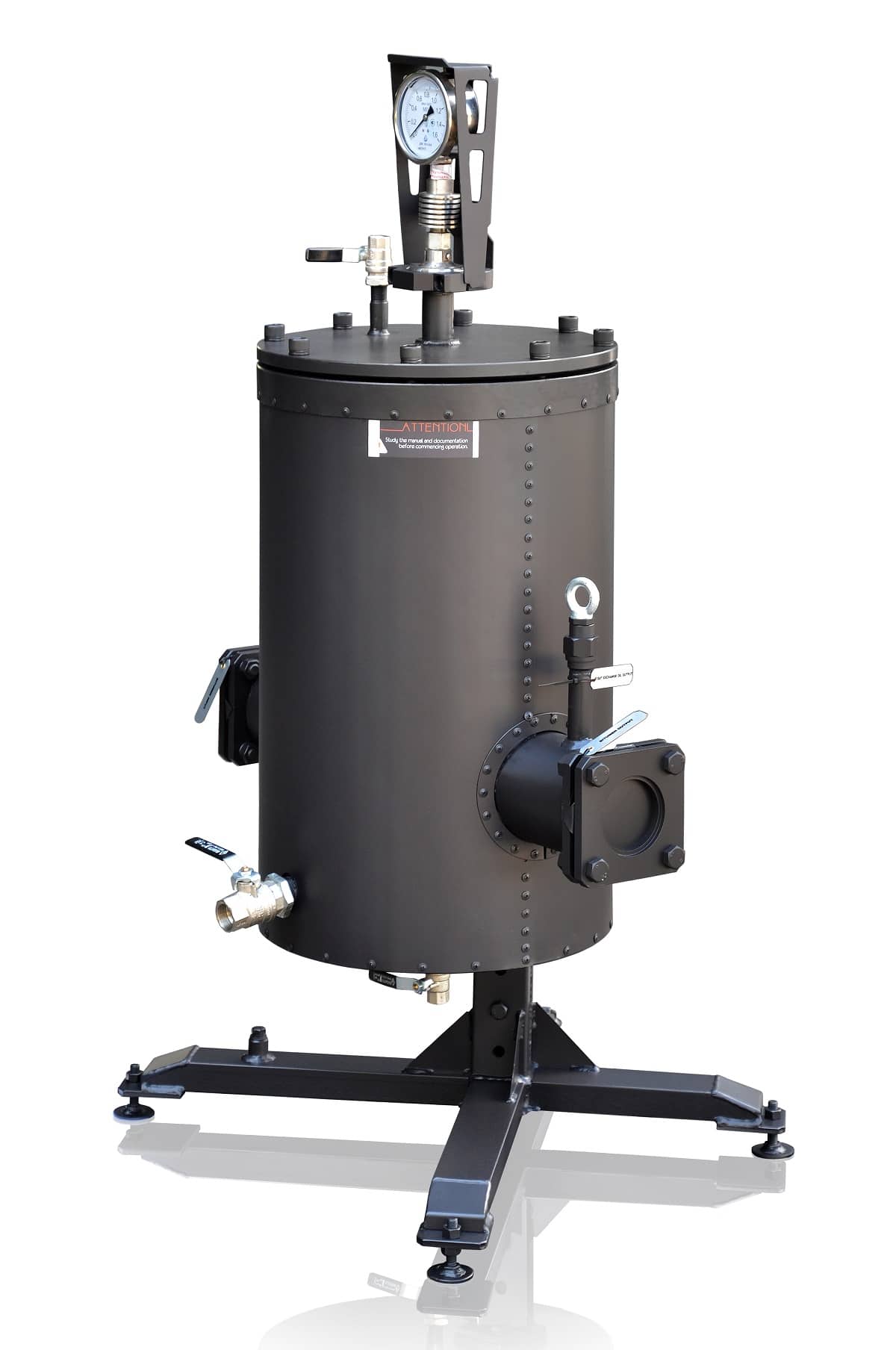FB Bitumen filter

FB
-
Specification
The FB bitumen1A bitumen is a sticky, black, and highly viscous liquid or semi-solid form of petroleum. filter2Filter is a device which separates solids from fluids by adding a medium through which only the fluid can pass. is designed to remove solid contaminants from bitumen and other non-corrosive liquids.
The filter is intended for integration into input, storage and output processes involving regular or modified bitumen3Modified bitumen is characterized by improved flexibility and longer service life, it also has a lower brittleness temperature and higher softening temperature., bitumen emulsions4Bitumen emulsion is a blend of fine beads of bitumen and water. and other high viscosity5The viscosity of a fluid is a measure of its resistance to deformation at a given rate. liquids which require heating.
This filter has two filter cartridges in order to operate continuously. It also features temperature and pressure sensors for reliability and safety.
Bitumen emulsions — Fields of application
- Road construction:
- surfacing emulsions;
- pothole patching;
- bonding of asphalt layers;
- using in Slurry Seal and Multimac technologies;
- ground and base stabilization;
- emulsions intended for reuse of asphalt materials (recycling);
- long-term storage emulsions (wintertime pothole patching mixtures);
- tackiness remover emulsions.
- Hydraulic engineering facilities:
- emulsions intended to arrange waterproof membranes for foundations, swimming pools, pipe and pile linings, etc.;
- emulsions are applied to the surface by jet method, single- or double-component method (to accelerate film formation).
- Roofing:
- emulsions intended to obtain waterproof membranes on the surface of roofs of various complexity. These emulsions are applied to the surface by jet method.
Bituminous grouts — field of application
- Bituminous grouts are classified both by fields of application and by methods of use (cold and hot coating).
- Some grouts require preliminary surface preparation with primers. A primer is a bituminous priming material containing a bitumen and a solvent and having a high penetrability and a short drying time.
- Types of grouts and their uses:
а) Coating grout (cold application):
- waterproofing of surfaces;
- treatment of joints and cracks;
- puttying of surfaces;
- attaching of rolled bitumen materials;
- anticorrosive protection of metal structures.
- b) Coating grout (cold application). It can be used at sub-zero ambient temperatures. It is used for repair and forms an ultrastrong waterproof coating on the steel, concrete, and wood structures sunk deeper into the ground.
с) Bituminous-rubber grout (cold application) is used for waterproofing of foundations, walls, tanks, pipelines, etc.
- d) Adhesive grout (cold application). Designed for attaching the extruded polystyrene to bituminous, bituminous-polymer insulating materials in foundation insulation systems.
Modified bitumen — Fields of application
- Road construction:
- production of asphalt concrete which is used for new construction and repair of first-class roads, bridges, overpasses, road junctions, etc.;
- production of stone matrix asphalt concrete (SMA) for pavement topping of first-class highways and roads;
- production of porous asphalt concrete;
- plaсing of crack-stopping membrane interlayers.
- Hydraulic engineering facilities:
- production of PMB-based grouts for coating of water storage facilities, swimming pools, water supply pipe linings.
- Roofing:
- production of PMB-based rolled roofing materials (Ruberoid, Euroruberoid).
- Bitumen shingles:
- production of grouts for laying and repair of roofing surfaces.


